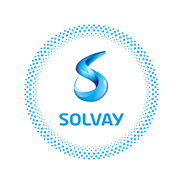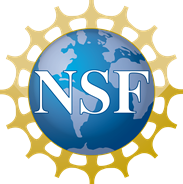
November 26 - December 1, 2023
Boston, Massachusetts
Symposium Supporters
2023 MRS Fall Meeting & Exhibit
Symposium SB04-Conducting and Functional Hydrogels—From Materials to Devices
Hydrogels are water-swollen natural and synthetic polymer networks which mimic the extracellular matrix of biological tissues. Due to their high water content (>90% by mass), hydrogels uptake their surrounding medium, such as ions, small molecules, and dissolved oxygen in biological fluids (e.g. cell culture media, interstitial fluid). Beyond ionic conductivity, hydrogels may be engineered to possess functional properties such as electrical, magnetic, optical, and piezoelectric. For example, hydrogels may be made of intrinsically electronically conducting polymers, such as conjugated polymers and mixtures based on thiophenes, pyrroles, or anilines. Additionally, active additives (e.g. polymers, nanomaterials, drugs) can be embedded in the matrices to impart other properties. Such functional hydrogels are being explored as part of bioelectronic, ionotronic, and photonic devices. In addition to functional properties, hydrogels may be designed to have unique mechanical properties that outperform their non-hydrogel counterparts. Soft hydrogels with mechanical profiles comparable to biological tissues may be ideal for biointerfacing, or formulations with high toughness or self-healing properties may useful in strain-dynamic applications. Despite these successful demonstrations, the synthesis and processing to achieve mutually exclusive properties, such as high conductivity with high stretchability, remains challenging. In various applications, hydrogels and their assembled devices are required to perform in complex environments, which imposes additional constraints on fundamental materials properties.
This symposium will bring together investigators from multiple disciplines to address the synthesis, characterization, processing, and fabrication of hydrogels or other hydrated materials that either (1) possess advanced properties including electronic, ionic, magnetic, optical, and piezoelectric or (2) are used in the construction of functional devices, such as electrode arrays, sensors, wearables for biological interfacing; biomimetic devices; soft robotics, and actuators; devices for monitoring and controlling cellular systems in vitro.
This symposium will bring together investigators from multiple disciplines to address the synthesis, characterization, processing, and fabrication of hydrogels or other hydrated materials that either (1) possess advanced properties including electronic, ionic, magnetic, optical, and piezoelectric or (2) are used in the construction of functional devices, such as electrode arrays, sensors, wearables for biological interfacing; biomimetic devices; soft robotics, and actuators; devices for monitoring and controlling cellular systems in vitro.
Topics will include:
- Conducting hydrogels & proteins: synthesis, characterization and application
- Various form factors of soft conducting materials (fibers, composites, 3D porous scaffolds)
- Electronically and/or ionically conducting materials
- Soft conducting materials with additional/unique properties (healable, stretchable)
- Cell-laden or biohybrid electronics and/or living hydrogels and their applications
- Bioinspired and biomimetic bioelectronics
- Smart and programmable hydrogels
- Hydrogels in soft robotics (e.g. actuators)
- Ionic, electronic, magnetic, and optical devices comprised of hydrogels, natural materials, and other hydrated materials
- Studies of aqueous operation and stability of electronic materials and devices as well as material interfaces
- Additive manufactured hydrogels and devices (3D, 4D)
- Hydrogels combined with synthetic biology approaches
Invited Speakers:
- Maria Asplund (Chalmers University of Technology, Sweden)
- Eloise Bihar (University of Colorado Boulder, USA)
- Fabio Cicoira (Polytechnique Montréal, Canada)
- Rylie Green (Imperial College London, United Kingdom)
- Laure Kayser (University of Delaware, USA)
- Dae-Hyeong Kim (Seoul National University, Republic of Korea)
- Jiyun Kim (Ulsan National Institute of Science and Technology, Republic of Korea)
- Wei Lin Leong (Nanyang Technological University, Singapore)
- Damia Mawad (University of New South Wales, Australia)
- Ivan Minev (University of Sheffield, United Kingdom)
- Seongjun Park (Korea Advanced Institute of Science and Technology, Republic of Korea)
- Khalil Ramadi (New York University, USA)
- Anderson Shum (University of Hong Kong, Hong Kong)
- Eleni Stavrinidou (Linköping University, Sweden)
- Jadranka Travaš-Sejdic (The University of Auckland, New Zealand)
- Cunjiang Yu (The Pennsylvania State University, USA)
- Hyunwoo Yuk (SanaHeal, USA)
- Xuanhe Zhao (Massachusetts Institute of Technology, USA)
Symposium Organizers
Alexandra Rutz
Washington University in St. Louis
USA
Anna Maria Pappa
Khalifa University
United Arab Emirates
Christina Tringides
ETH Zürich
Switzerland
Shiming Zhang
The University of Hong Kong
Faculty of Engineering
Hong Kong
Topics
additive manufacturing
biological
biomaterial
organic




-2.tmb-mtg_rel_ad.png?Culture=en&sfvrsn=a4240c09_1)

























